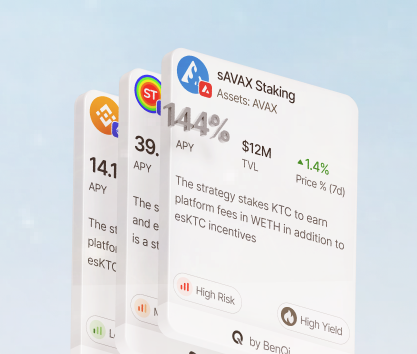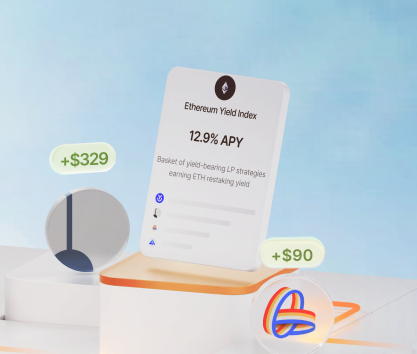Agentic AI is one of the hottest topics in the world of high-tech. The largest transcontinental corporations are in a race to the most advanced AI model, while everyone and their beloved auntie are trying to find the best way to implement artificial intelligence into existing products. Coming up with a completely novel product is quite hard, but you can integrate intelligent agents in AI systems and other products that are already in high demand.
When it comes to DeFi investments, the narrative of agentic AI in decentralized finance has been one of the most intriguing and promising in 2024. Unfortunately, it never really took off. For instance, platforms focusing on various AI agents have a relatively low TVL of $53 million spread across 15 protocols operating on 12 chains.
Real-life AI use cases
The idea of using autonomous systems that can operate without any human supervision is one of the oldest in the book. It has been focused on by fiction writers, scientists, and tech enthusiasts. Multiple recent advancements in the field of artificial intelligence have made it possible to integrate agents that are very similar to what was described by sci-fi narratives in a wide range of systems.
We are going to talk about some use cases that serve as excellent AI agent examples and give you a glimpse of what the future might look like if the path we are on does not end in a disappointing nowhere.
AI in healthcare and finance
These two areas are some of the most obvious for the implementation of AI agents. Many expert artificial intelligence systems are already better than many trained specialists at identifying cancer tumors on MRI scans or providing diagnoses with a multitude of correlated factors affecting the diagnostic procedure.
Here are reasons why these systems work well in healthcare:
- Better diagnostics. The enormous computational power of many expert systems makes human analytical capabilities seem insignificant. Robots can read all sorts of data and quickly identify patterns on scans and reports. It means that diagnoses become more precise and can be generated faster. According to surveys, over 54% of surveyed people support the use of AI in diagnostics.
- Patient care. AI can be used across many fields, including medical insurance and consumer care. An incredible 23% of all healthcare institutions in the US already use AI for clinical workflow. Over 25% use it for predictive analytics. 15% rely on it for better management of clinical documentation and records.
AI in finance and DeFi
Financial analysis heavily relies on pattern recognition. In fact, the whole field of technical analysis is all about trying to find repeating patterns and behaviors in the history of price action to make predictions about the future of financial markets. Artificial intelligence can be incredibly efficient when it comes to searching for patterns.
Among machine learning applications, finance seems to be an excellent target for research. The idea of using agentic AI for better market forecasting has been around for ages, but we are only now starting to integrate practical solutions instead of daydreaming about them.
Here are some interesting stats that you may find interesting:
- 97% of all organizations in the wealth management industry report positive ROI after implementing AI.
- 14% of companies experienced a notable productivity boost thanks to the use of additional computational resources and agents.
- Over 60% of all investment funds utilize AI agents for various purposes, including data distribution and analysis.
- 90% of all financial advisors surveyed report a positive outlook on using AI agents in financial analysis.
- Some forecasts predict that spending associated with AI in wealth management will grow to $632 billion by 2028.
According to some research and speculations, all large investment funds and banks use AI in one form or another to improve productivity, investment outcomes, and portfolio management. Since it is a form of automation, it will be extremely useful in the DeFi sector that does not use intermediaries or human operators to function.
The future of intelligent agents
As of right now, the overwhelming volume of effort dedicated to developing and building artificial intelligence products is generated by companies that try to bring a powerful AGI (artificial general intelligence) to the market. Companies like OpenAI, X, Alphabet, Meta, and others are strongly focused on creating a thinking entity that will rely on Natural Language Processing (NLP) and computer vision to interact with the real world.
While these efforts are enormous and, quite frankly, frightening, we are still decades away from something viable, according to thousands of researchers and specialists. However, the distant nature of AGI does not diminish the importance of systems that are currently being implemented across a large number of industries and domains.
For instance, autonomous systems in industry automation can be more than just impactful. Various forms of automation have already wiped out millions of jobs across the globe. Further improvements are promising to make human labor largely obsolete and force millions into new industries.
Interestingly enough, outside of some obvious challenges for the wider adoption of AI agents (security issues, technology inefficiencies, etc.), the public is more concerned with various ethical AI challenges:
- Biases and fairness can be incredibly damaging, as many neural networks inherit them from training data.
- Transparency and explainability pose massive threats to the integrity of any sector using AI.
- Accountability is another issue. If an AI agent makes a mistake, it is hard to point at an entity or person responsible for it.
- Misuse of such dangerous technology is another important concern. Even in finance, a massively superior model can destroy the livelihoods of millions.
- The long-term impact on society is also something that keeps many people awake at night. We have to be very careful when implementing technology that can get out of control.
On the bright side, there are many areas where autonomous agents can be used with relative safety. For instance, it is already a valuable instrument in improving user experience on many platforms. Companies that implement them report higher levels of consumer satisfaction and productivity.
The main takeaway
An independent AI agent can be used with great success in many industries, but we must proceed with caution. So far, finance, manufacturing, logistics, education, and healthcare have been the most affected by the widespread adoption of this novel technology. While it can be dangerous to experiment with untested tools in fields where users are exposed to all sorts of risks, you can already engage with many LLMs (large language models) or personal assistants.
Rivo extends you an invitation to try the Maneki AI agent. It is one of the best virtual assistants in the DeFi ecosystem. The agent guides users through the onboarding process while they are getting better at navigating the platform. It can provide valuable educational materials and tips to newcomers. It can collect market insights and post them on social media platforms. However, its main function is to analyze the preferences of DeFi investors and suggest investment strategies that will suite them perfectly.
The Rivo Yield Marketplace features a variety of strategies picked by experts and evaluated by trained professionals. These are reliable investment options for DeFi enthusiasts!









